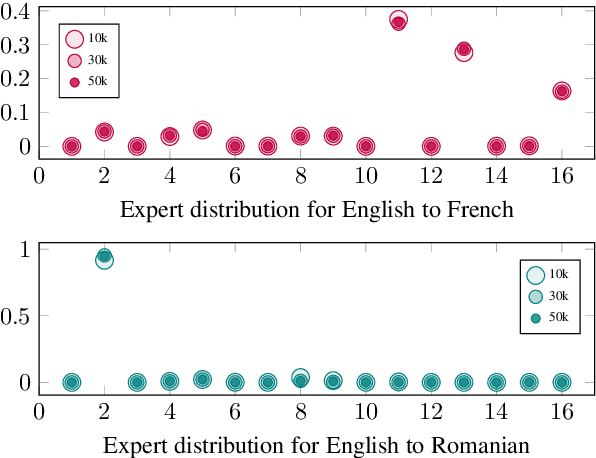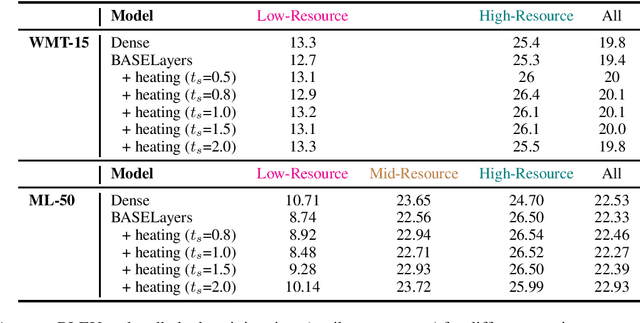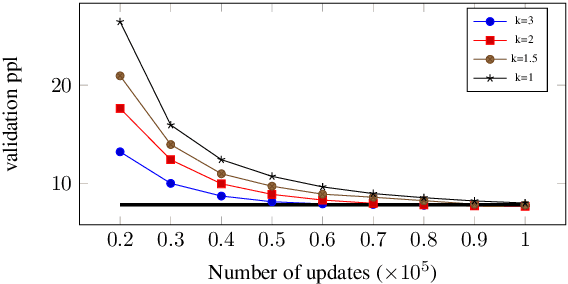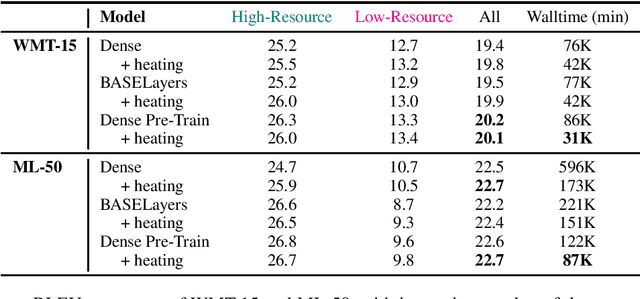Tricks for Training Sparse Translation Models
Paper and Code
Oct 15, 2021



Multi-task learning with an unbalanced data distribution skews model learning towards high resource tasks, especially when model capacity is fixed and fully shared across all tasks. Sparse scaling architectures, such as BASELayers, provide flexible mechanisms for different tasks to have a variable number of parameters, which can be useful to counterbalance skewed data distributions. We find that that sparse architectures for multilingual machine translation can perform poorly out of the box, and propose two straightforward techniques to mitigate this - a temperature heating mechanism and dense pre-training. Overall, these methods improve performance on two multilingual translation benchmarks compared to standard BASELayers and Dense scaling baselines, and in combination, more than 2x model convergence speed.
 Add to Chrome
Add to Chrome Add to Firefox
Add to Firefox Add to Edge
Add to Edge